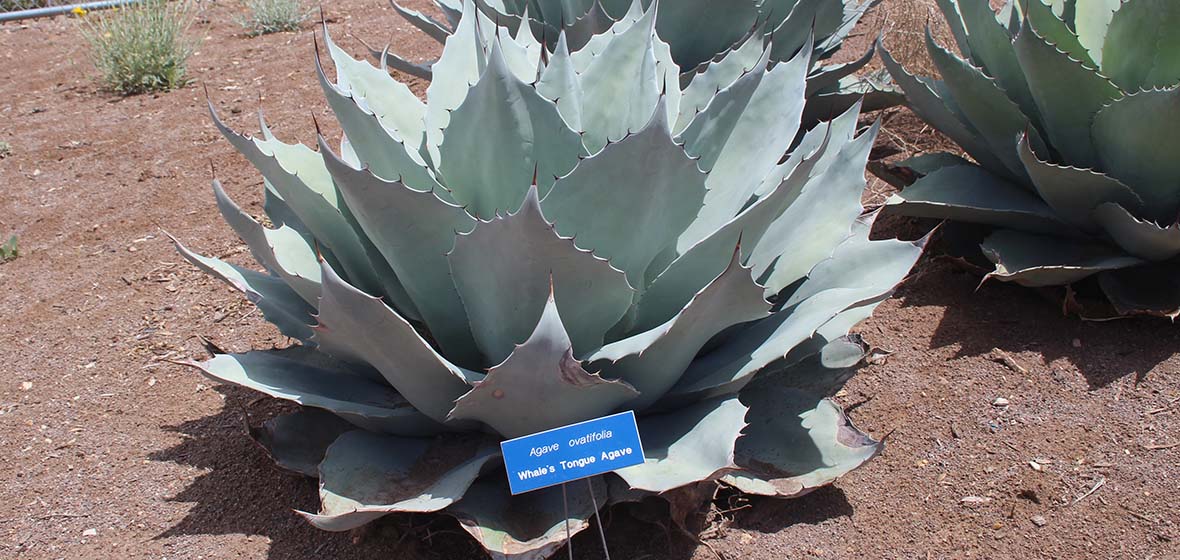For the past nine years, the Las Vegas Business Press has awarded local businesses for their best efforts in achieving eco-friendly sustainability. They are called the Green Awards and among the winners - University of Nevada Cooperative Extension for Innovation of the Year for the Demonstration and Test Gardens.
This award is open to businesses, nonprofits or public agencies for a project that demonstrates genuine innovation in the pursuit of improved environmental performance. According to Social Horticultural Specialist and Associate Professor Angela O'Callaghan, Cooperative Extension's Demonstration and Test Gardens exemplify exactly that.
"There's no place like it," O'Callaghan said. "There really isn't. There are botanical gardens in many places. There are educational facilities all over, but this is different because it's got such diversity in a very small area."
The Demonstration Garden may only span for three acres behind the Clark County Lifelong Learning Center in Henderson, but is home to over 1,000 species of native and desert-appropriate plants. Specialty areas include the rose, herb, children's, cactus, vegetable and palm gardens.
Each innovative and sustainable area has placards noting the Latin and common names of all of the plants so visitors can identify them even without the assistance of one of 200 Master Gardener volunteers. However, for O'Callaghan, it is the volunteers who inspire innovation in the gardens.
"We have projects that have been developed and worked on by volunteers," she said. "For instance, we have 25 different types of milkweeds. That was one master gardener who said, 'you know, wouldn't that be interesting.'"
Perhaps one of the most remarkable features to note in the garden is its native wash.
"We knew from the time we moved in that there is a natural wash running through the back," O'Callaghan said. "So [Cooperative Extension's] Professor M.L. Robinson worked to make sure that was cleared out, and now that's our water catchment. There are things growing in there and the only irrigation that those plants in that wash get is from the sky."
So what's the secret to maintaining a garden full of innovation?
"There's a Master Gardener Program in every state, each with its own different requirement," explained O'Callaghan. "Here, everyone has to commit at least 50 hours each year in one of many volunteer projects. Our average number is 125 hours a year. People are wildly committed here."
"We couldn't do it without the hundreds of volunteers who are highly trained," she added.
As for future projects, O'Callaghan mentions one she has her eyes set on.
"I'd really like to take a patch here and develop an American Native demonstration garden," she said. "This is an educational facility. We want to make sure that everybody knows that we are here to teach, to show and to demonstrate."
In the meantime, visitors can walk around the track and take a stroll in the award-winning Demonstration Garden to learn about what works and what doesn't in our particular desert climate. In the Garden, visitors will find:
- Orchard - Houses several varieties of stone fruit and apple and pear trees to demonstrate which types are more drought and heat tolerant.
- Compost - Showcases the many types of compost containers that are in use for recycling of plant waste.
- Mulch - Visitors can learn about the different uses for ground covers such as stone, bark and rocks.
- Native Wash - Perhaps one of the most innovative areas in the gardens is a natural water catchment. Plant materials can thrive in the wash even without supplemental irrigation.
- Children's garden - Elementary schoolchildren learn about the sources for their food, flowers and clothing.
- Roses - Home to a variety of beautiful roses that are able to survive the challenging desert climate.
- Cactus garden - Visitors can stroll through the cactus garden to view several varieties of cacti.
- Milkweeds - Plantings of 26 species of milkweed to support the Monarch butterfly are located throughout the garden.
- Herbs - View the "farm" or the formal herb gardens (located in the Courtyard).
The Demonstration and Test Gardens are located at 8050 Paradise Road, Las Vegas, Nev. and are open to the public for self-guided tours Monday through Friday, from 8 a.m. to 5 p.m. Master Gardener's also lead weekly tours for the public. For more information, email or call the Master Gardener Help Desk at 702-257-5555, or visit the Facebook page.












